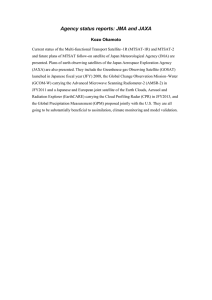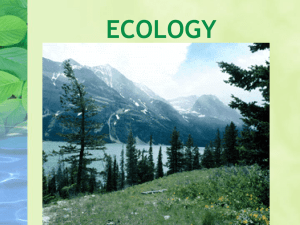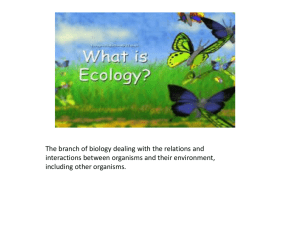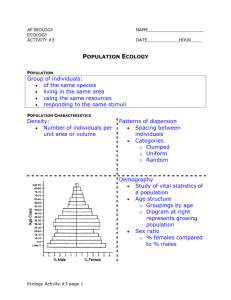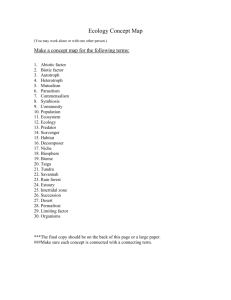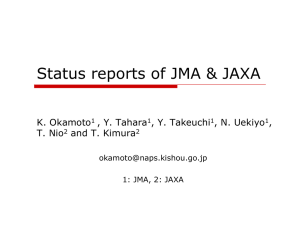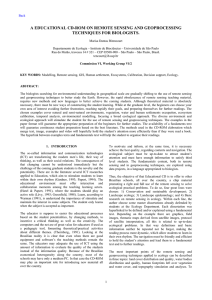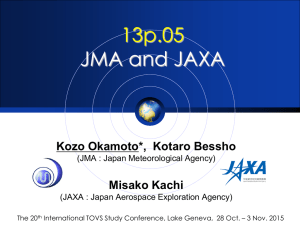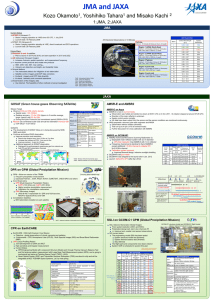Document 11842031
advertisement
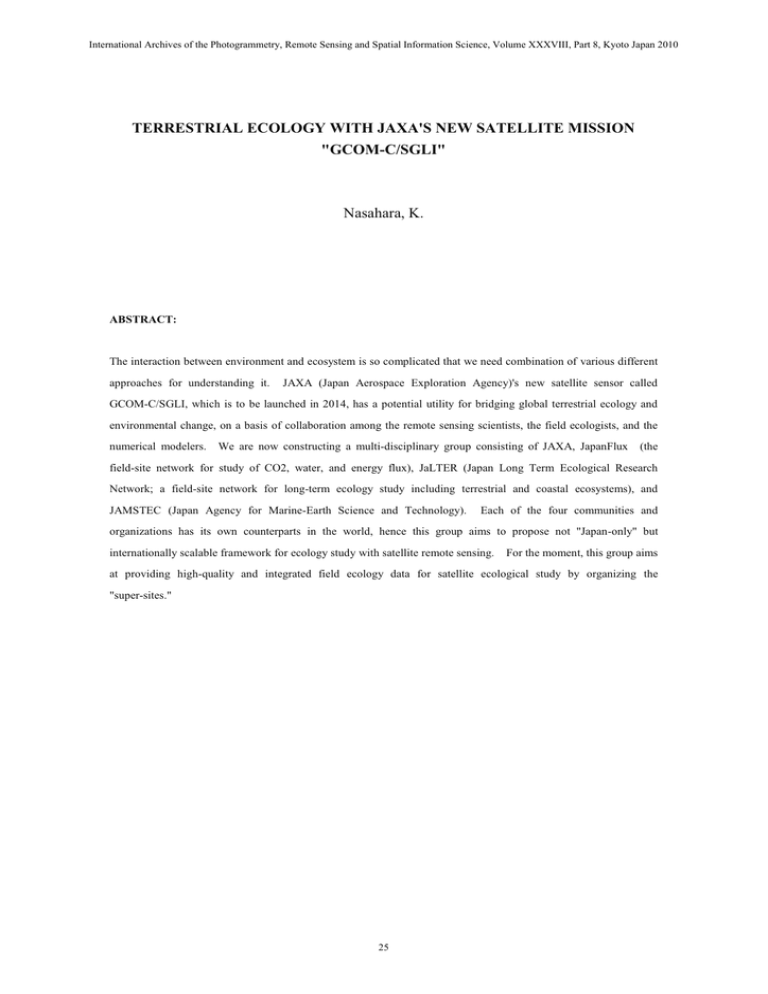
International Archives of the Photogrammetry, Remote Sensing and Spatial Information Science, Volume XXXVIII, Part 8, Kyoto Japan 2010 TERRESTRIAL ECOLOGY WITH JAXA'S NEW SATELLITE MISSION "GCOM-C/SGLI" Nasahara, K. ABSTRACT: The interaction between environment and ecosystem is so complicated that we need combination of various different approaches for understanding it. JAXA (Japan Aerospace Exploration Agency)'s new satellite sensor called GCOM-C/SGLI, which is to be launched in 2014, has a potential utility for bridging global terrestrial ecology and environmental change, on a basis of collaboration among the remote sensing scientists, the field ecologists, and the numerical modelers. We are now constructing a multi-disciplinary group consisting of JAXA, JapanFlux (the field-site network for study of CO2, water, and energy flux), JaLTER (Japan Long Term Ecological Research Network; a field-site network for long-term ecology study including terrestrial and coastal ecosystems), and JAMSTEC (Japan Agency for Marine-Earth Science and Technology). Each of the four communities and organizations has its own counterparts in the world, hence this group aims to propose not "Japan-only" but internationally scalable framework for ecology study with satellite remote sensing. For the moment, this group aims at providing high-quality and integrated field ecology data for satellite ecological study by organizing the "super-sites." 25
